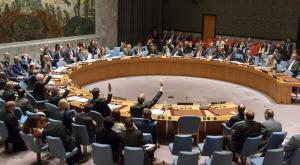Ukraine has a high level of raw material reserves that have not yet been fully explored. It is known that these include deposits of iron ore, coal, lithium, and rare earths, which are needed by key industries worldwide. The development and industrial use of this raw material potential is in Ukraine’s strategic interest, as the extraction of raw materials can make a sustainable contribution to the reconstruction of the country. At the same time, economic profits can be made that could improve the currently precarious financial situation. Increased cooperation with the EU in the raw materials sector promotes Ukraine’s integration into the European internal market. The necessary political framework for cooperation between the EU and Ukraine to develop this raw material potential was created in 2021 through the Memorandum of Understanding. A diversified and strategic raw material partnership with Ukraine is in line with the EU’s raw material strategic objectives, as defined in the Critical Raw Materials Act.
The strategic interest in the mining areas of the Ukrainian regions becomes particularly clear against the background of arms production, as the raw materials are the basis for a whole range of weapon systems and military technologies that are used in the war against Russia and will continue to be indispensable in the future. The European intention is for Ukraine to locally process strategically important raw materials such as titanium and manganese, and industrial metals, which could make the country a significant arms producer in Europe. Ideally, a closed value chain would be created, ranging from the extraction of raw materials to the finished end product - from the raw material titanium to the cruise missile Taurus.
Russia’s interest in Ukraine’s raw material reserves is correspondingly large. Looking at the location of the raw materials, it becomes apparent that rare lithium deposits and prospecting fields with rare earth contents as well as non-ferrous metals such as cobalt and copper are partly found in the areas of Ukraine occupied by Russia. The geographical proximity to the Ukrainian-Russian front currently poses challenges to raw material extraction and has a potentially deterrent effect on investors. Nevertheless, it is crucial to improve investment conditions, for example by pushing back corruption, in order to enable necessary investments. In this way, Ukraine could become a strategic raw material partner for the EU as part of its global diversification strategy and reduce the existing dependence on Chinese raw materials in the sense of “de-risking”.
Please note, to date the analysis is only available in German.
Topics
About this series
The series informs in a concentrated form about important positions of the Konrad-Adenauer-Stiftung on current topics. The individual issues present key findings and recommendations, offer brief analyses, explain the Foundation's further plans and name KAS contact persons.





